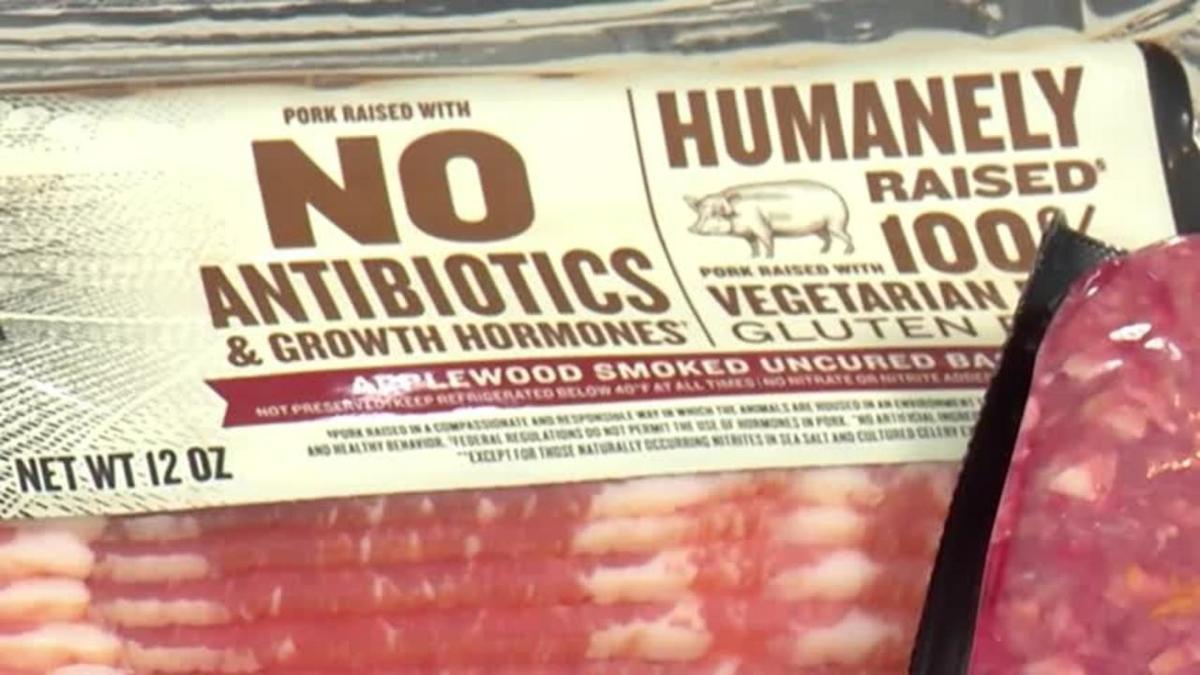
The health benefits of antibiotic-free meat largely stem from the fact that meat, whether it is antibiotic-free or not, has immense nutritional value. Just like any food, the way you prepare your meat will impact the quality of the nutrients it contains. This article discusses the importance of the health benefits and preparation practices of farm-fresh antibiotic-free meat.
Estimated, 80% of the agricultural animals are unnecessarily given antibiotics to promote growth. Despite several warnings by WHO to minimize the routine usage of unnecessary antibiotic injections on healthy farm animals, to help preserve the stock for human medicine, the practice continues.
While many countries in the European Union have banned the use of antibiotics in food animals, this practice remains legal in the United States.
Despite the banning, it is estimated that almost 60% of entire antibiotic production is used in livestock. Leaving only 40% for human medicine and experiments.
The largest amount is consumed by poultry farming. And while usage of antibiotics is relatively beneficial for farmers and the economy, the transmission of these multiplying pathogenic organisms to humans via the food chain can lead to potentially deadly illnesses and diseases.
Dangers Of Overuse Of Antibiotics
When antibiotics are overly injected in healthy animals, the germs and bacteria present due to poor sanitation, start to develop antibiotic resistance. Making it harder to treat the animals when they get sick.
While antibiotics reduce the growth of harmful bacteria, which in turn makes it more difficult for the disease to survive and spread. The overuse of these drugs has led to a widespread of drug-resistant bacteria. Which has led to the formation of multi-drug resistant pathogens.
Over time, these strains of bacteria start to resist the killing effects of antibiotic and drug treatments. And the risk of transmission of such drug-resistant illnesses can be life-threatening.
This poses a serious threat to human beings since these bacterial pathogens start to multiply and can directly infect humans leading to severe public health crises and even deaths.
Some researchers predicted that, by the year 2050, if humans fail to stop the overuse of antibiotics in food animals, these drug-resistant infections will create a worldwide death toll of more than 10 million deaths each year. Surpassing cancer as the leading death cause.
Pressure On Livestock Farmers
Farming animals for meat is a slow and intense process. Especially for the females, if not given enough time, in-between and after births, to recover, it might severely compromise their immune system.
Back in 1910, due to a severe shortage of meat, farmers and workers carried out various riots. For which scientists started to look for cheaper means to produce meat at large scales.
Since then, livestock and poultry farming have become one of the most widespread industries worldwide. On average, Over 90 billion tons of chicken meat is produced each year to fulfill public needs.
Due to the excessive demand, farmers are routinely pressurized by drug manufacturers and wholesalers to continue the usage of these antibiotics to nurture fat and healthy food animals.
According to a recent study, over 80% of antibiotic doses are used in poultry and pig farming. 10 times more than what is used for cows and sheep. While meeting the market demand is necessary, keeping the animals healthy is a major concern.
Especially with pigs and chickens, since they tend to nurture in crowded and confined spaces, the risk of disease transmission and a breakout is immensely high.
To stop the spread of deadly diseases, farmers tend to resort to antibiotics to wear off the illness, and while that does work in the short term, does more damage to the animal if injected with large doses.
Additionally, since antibiotics help the animal to grow faster, they might wipe out the gut bacteria which helps in weight regulation. Which might result in negative impacts on many types of avian diseases.
There are many types of drugs that kill bacteria, including tetracycline, doxycycline, minocycline. Therapeutic use of these drugs in minimal dosage can be beneficial for preventative and curative treatments.
Shop Differently
There’s a myth that antibiotic-free meat is super expensive. Of Course, it’s a bit pricey compared to the meat raised with antibiotics, but that doesn’t mean that it is out of reach for the regular budget-minded shoppers. In fact, the organic meat Toronto from GTA Meats is one of the best, and the most affordable meats in the Greater Toronto Area.
Plus, 80% of the market meat contains antibiotic-resistant bacteria that pose a direct risk to public health. Antibiotics containing chicken and meat are usually served at fast-food restaurants.
The solution here is that we as consumers can shop a bit differently. Buy less so that you can buy better. Substitute your regular meat with antibiotics-free chicken and beef at home and enjoy the wide variety of vitamins and nutrients you’ll get from this much healthier alternative.
Health Benefits And Preparation
If you make your antibiotic-free chicken or beef at home. You’ll find a wide range of healthy ingredients. To begin with, you can choose which antibiotic-free cuts you want to use. For example, lean ground beef has been shown to contain higher levels of vitamins and minerals you need to keep your body healthy, such as vitamin B12, calcium, magnesium, and potassium.
Plus, the lean cuts provide even more protein than the top cuts. You can also make use of extra vegetables, fruits, and grains such as millet, sorghum, buckwheat, and millet oil to round out your meal.
The most important thing about DIY cooking is the careful planning and clean cooking process. Make sure that your cutting board is clean and your knives are sharp. Use whole foods to bring out the natural flavor in your food.
Make sure to marinate your cuts in brine for at least two hours before cooking. Your cuts will be ready to fry, bake, broil, stew, and even toss into your crockpot for a quick and healthy dinner.
